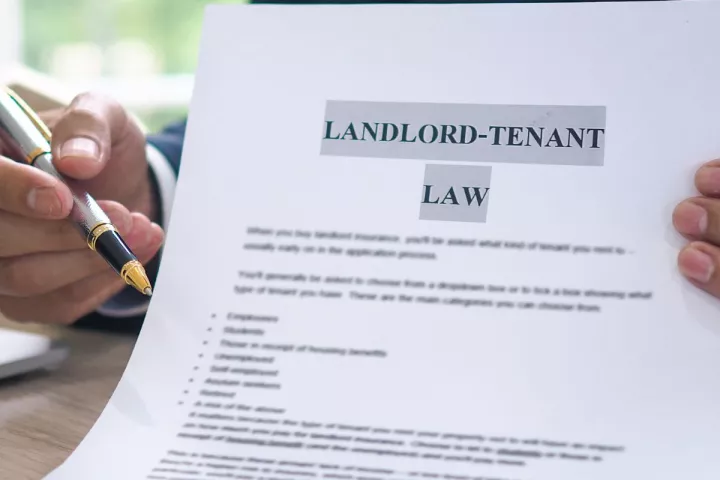The amount of tax you pay on rental income varies depending on factors like your total taxable income, deductions, and tax bracket. Rental income is typically taxed as ordinary income, requiring you to report all income from the property. Your tax rate is determined by your marginal tax bracket, which can range from 10% to 37%.
Deductions such as mortgage interest and maintenance costs can lower your taxable rental income and reduce your overall tax liability. To calculate your rental income tax, determine your annual rental income and consider your property basis for depreciation.
So, it’s crucial to accurately report your rental income and take advantage of available deductions to minimize your tax obligation. Consulting with a tax professional can provide personalized guidance based on your specific circumstances.
What Sources Contribute To Taxable Rental Income?

Rental income is typically subject to taxation and encompasses various sources related to property ownership. Here are the essential points to consider:
Rent Payments
The primary source of income from tenants is rent payments. This includes regular rent payments as agreed upon in the lease or rental agreement.
Security Deposits
Security deposits held by landlords serve as a safeguard against damages or unpaid rent. If a security deposit is used as last month’s rent or applied towards damages, it is considered taxable income in the year it’s retained. However, if the deposit is returned to the tenant at the end of the lease term, it is not taxable.
Advance Rent
Both the first and last month’s rent, if paid in advance, are considered taxable income in the year received, regardless of the period they cover.
Tenant-Paid Expenses
Expenses covered by tenants, such as utilities (e.g., water, power), are considered part of rental income and are subject to taxation. Landlords must include these payments when calculating their total rental income for tax purposes.
How Does Rental Income Taxation Work?

Rental income, as defined by the IRS, encompasses any payment received for the use or occupation of property. For individuals not filing as corporations (such as LLCs or S-Corps), rental income is taxed at standard income tax rates, applicable at both state and federal levels unless exempt in states with no income tax.
The tax rate applied to rental income depends on one’s filing status and the amount of taxable income reported for the year. The 2024 federal income tax brackets have been adjusted to account for inflation, with a standard deduction of $14,200 for single filers and $28,400 for joint filers.
For instance, a single filer in 2024 with $50,000 of taxable rental income would fall into the 22% tax bracket, calculated as follows:
- 10% for the first $11,200 of income ($1,120)
- 12% for income between $11,201 and $45,525 ($34,324), resulting in $4,119.88
- 22% for the remaining income between $45,526 and $50,000, totaling $1,044.88
This totals $5,284.88, plus 22% of the amount over $45,525 ($1,044.88), resulting in a total tax bill of $6,329.76.
Christanne Wright, a real estate CPA, emphasizes that rental income is typically considered ordinary income, subject to federal and state income taxes.
Thus, rental income must be reported separately from ordinary W-2 income. Most real estate investors will need to file a Schedule E, a section of Form 1040 dealing with supplemental income and loss, such as rental income and royalties.
2024 Income Tax Brackets
| Tax Rate | Single Filers Income Range | Married Filing Jointly Income Range | Head of Household Income Range |
| 10% | $0 to $11,600 | $0 to $23,200 | $0 to $16,550 |
| 12% | $11,600 to $47,150 | $23,200 to $94,300 | $16,550 to $63,100 |
| 22% | $47,150 to $100,525 | $94,300 to $201,050 | $63,100 to $100,500 |
| 24% | $100,525 to $191,950 | $201,050 to $383,900 | $100,500 to $191,950 |
| 32% | $191,950 to $243,725 | $383,900 to $487,450 | $191,950 to $243,700 |
| 35% | $243,725 to $609,350 | $487,450 to $731,200 | $243,700 to $609,350 |
| 37% | $609,350 or more | $731,200 or more | $609,350 or more |
Calculating Rental Income Tax

When computing rental income tax, it’s important to consider various sources of income received throughout the tax year. These include:
- Rent collected during the tax year.
- Prepaid rent received in advance.
- Fees received from tenants, including charges for early termination, late payments, or pet-related expenses.
- Non-refundable security deposits retained by the landlord.
- Direct payments made by tenants to cover expenses on behalf of the landlord.
- Services rendered by tenants instead of rent payment, such as property maintenance work exchanged for reduced rent amounts.
Now, let’s delve into the tax implications-
Income Tax
As a landlord, you’ll pay income tax on the rent you earn. The first £1,000 of rental income is tax-free (known as the Property Income Allowance). Anything beyond this is taxable at regular Income Tax rates.
Calculating Taxable Income
Add your rental income to any other earnings (e.g., wages) and additional income. This total amount forms your taxable income.
Expenses Deduction
You can deduct allowable expenses (e.g., mortgage interest, maintenance costs) from your rental income to lower your taxable income.
Live-in Landlords
If you rent out a room in your home, you can earn up to £7,500 tax-free using the Rent-a-Room Scheme.
Remember, accurate record-keeping is crucial. Keep track of rent received, expenses, and other relevant details. If you’re unsure, consider using rental property management software to streamline your accounting and maximize deductions.
Calculating Rental Property Expenses

When it comes to rental property expenses, understanding and accurately estimating them is crucial for successful property management. Let’s explore the common expenses associated with owning and operating a rental property:
Acquisition Expenses
These costs occur during property purchase and include:
- Interest: Mortgage interest payments.
- Mortgage Points: Fees paid to reduce the interest rate.
- Real Estate Taxes: Property tax payments.
- Depreciation: Spread over 27.5 years.
- Other Fees: Legal fees, surveys, and more.
Leasing Expenses
These relate to tenant acquisition and retention
- Marketing Costs: Yard signs, premium rental listings.
- Tenant Screening: Credit checks, background verification.
- Leasing and Renewal Fees: Paid to agents or property managers.
- Eviction Costs: Legal notices, court fees, or cash-for-keys.
Operating Expenses
Property ownership entails various recurring costs that should be factored into financial planning. These include maintenance and repair expenses for regular upkeep and fixes, insurance premiums providing coverage for property and liability, and annual property taxes levied by local governments. Utility bills covering water, electricity, gas, and other services are also part of these expenses, along with any applicable fees.
Further, homeowners Association (HOA) fees and property depreciation are essential considerations for long-term financial management. Proper budgeting for these recurring costs is crucial for maintaining the property’s value and ensuring financial stability.
Calculating Operating Expenses
Divide your total expenses by the rent price charged to tenants (or rental income). For example, if expenses total $500 for a rental with a monthly rent of $1,375, the gross operating income (GOI) would be approximately 36.3%. Aim to keep GOI between 35% and 45% for each rental property.
Final Words
How much tax you pay on rental income hinges on factors like your overall earnings, deductions, and tax bracket. Rental income is treated like regular income, subject to federal tax rates that vary from 10% to 37%.
Moreover, deductions, such as mortgage interest and property maintenance expenses, can help trim your taxable rental income and lessen your tax bill. It’s vital to report your rental earnings accurately and make the most of deductions available to you.
Also, seeking advice from a tax professional can simplify the process and ensure you’re maximizing your tax benefits.



